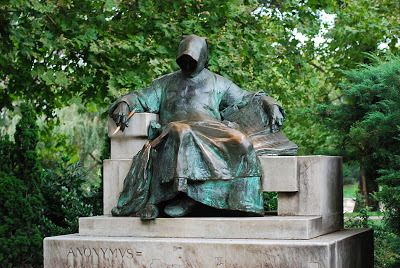The Romantic and Mysterious Anonymous
Hundreds of years ago, during the 10th Century,
kings needed to rely on others for information. They usually hired scribes or
wandering monks to fill them in on the history of the region. After all, the
king was usually busy chasing Marie Antoinette-type girls around his
well-manicured hedges or he had to go fight off raiding marauders from
neighboring countries. Usually these intruders or lovers spoke a different
language and keeping everything straight was a nightmare. Fortunately, these
monks just wanted food and a little time to spread the Good word while writing
a fairly accurate description about what was happening around or within the
castle walls. Of course, in the end, the written word was dangerous and could
start wars.
“Who wrote that and how dare he say the
Princess is ugly?"
Most of the time, pride divided everyone and for safety’s
sake, the monks decided to chronicle as Gallus Anonymous or just Anonymous for
short. To this day, the accounts of what they wrote are enthusiastically
contested back and forth by historical scholars, religious researchers and
various countries with different points of view about who settled what, where
and when. Though always controversial, the French, Italian and Hungarian monks
wrote their now disputed portrayals in Latin or Greek for the aristocratic and
educated, multilingual and faithful noblemen. Few of these documents survived
but the writing that did is considered quite lovely in a literary and cultural
sense.
Today when we think of Anonymous, we think of the spammers, who
send us messages from across the globe. The real Anonymous had no typewriter
and certainly no internet connections. No royalties, no advances, difficult,
hostile conditions--
these were the writers who wrote for their king, their
country and God.

Will your words create a stir? Do you cloak yourself behind
a pen name? Are you Anonymous?
Published on May 30, 2013 18:07
No comments have been added yet.



